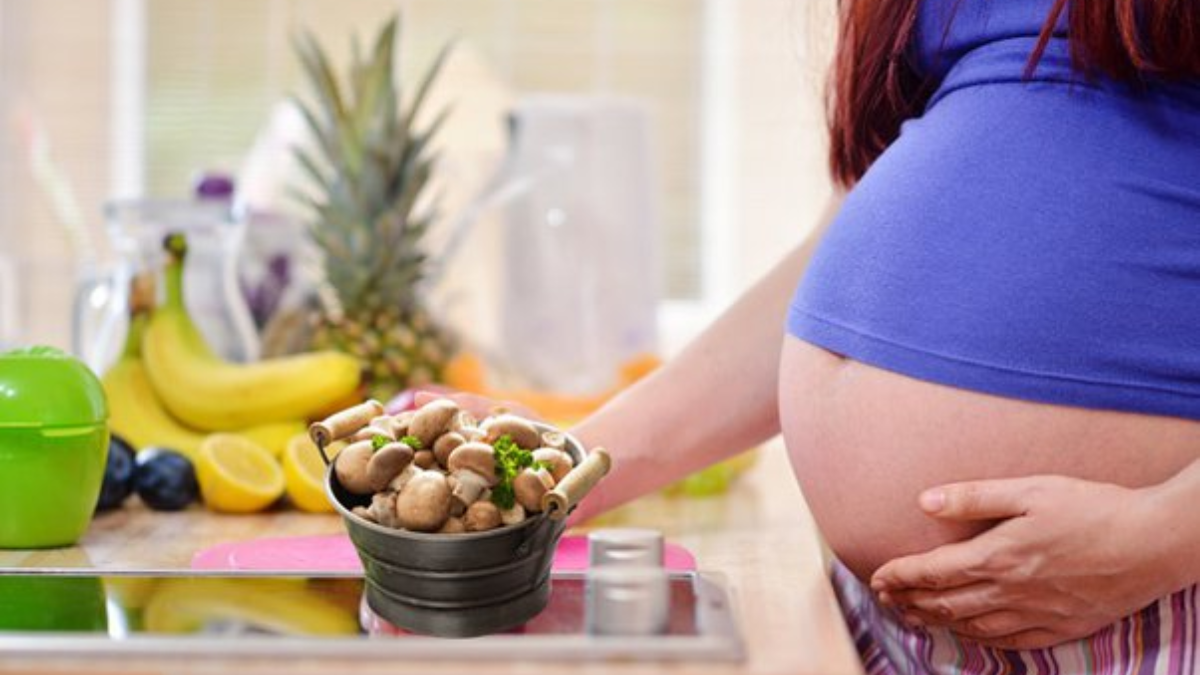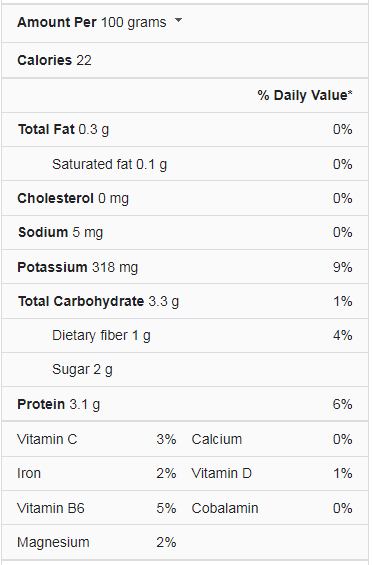The proper diet must be followed while pregnant. This, however, can be challenging because many would-be mothers are often supplemented with misconceptions and conventional wisdom. Mushrooms are one of the things that the majority of pregnant women are wary about. Some claim they are safe to eat while pregnant, while others claim they harm the mother’s health.
As the fruiting bodies of fungi, mushrooms have long been used by humans for both culinary and therapeutic purposes. However, some worry over the potential for poisoning or changes to a pregnant woman’s brain caused by mushrooms. Many people have unfavorable opinions of mushrooms, particularly the hallucinogenic psilocybin (magic) mushrooms.
To create delectable and nourishing dinners, mushrooms can be used for various foods, including soups, salads, and pizzas. However, you could be unsure whether eating mushrooms while pregnant is safe. To reduce the chance of toxicity, however, you should choose the appropriate ones. Mushrooms that have just been plucked are calorie- and protein-rich.
Mushroom Nutrition Facts
What are Mushrooms?
Mushrooms are frequently mistaken for vegetables by people. However, this is untrue. All fruits and vegetables derive from eatable plants. The primary attribute of plants is the presence of chlorophyll, which is used to transform solar energy into carbohydrates. However, as mushrooms lack chlorophyll, they are unable to photosynthesize and must instead “steal” the carbohydrates they require from plants. One of the numerous species of fungi is the mushroom (Agaricus Bisporus). Because they are so many different species, they have been given their kingdom, “The Kingdom of Fungi.”
Can Pregnant Women Eat Mushrooms?
The fungus mushroom is edible. They are a nutritional powerhouse, rich in vitamins, minerals, and trace elements. They are a low-calorie source of fiber and high-quality protein. The amount of calories in 100 grams of white button mushrooms is about 22.
When swallowed, a mushroom allergy can have life-threatening negative effects. Some people may experience stomach issues like nausea, vomiting, and diarrhea after consuming mushrooms, including wild and magic mushrooms. However, some edible mushrooms may have negative effects on allergy sufferers.
As a result, if you want to eat mushrooms, you should exercise extra caution because there is a possibility of negative effects when pregnant. However, if you do not suffer any physical side effects after consuming them, you can continue to enjoy them and benefit from their health benefits in moderation.
Types of Mushrooms to Eat While Pregnant
In conclusion, mushrooms have a variety of nutritional advantages and are safe to eat while pregnant. Although eating mushrooms is typically considered safe when pregnant, it’s crucial to pick the most secure kind:
Culinary Mushrooms
The safest culinary mushrooms to eat are Shiitake, portobello, oyster, maitake, chestnut, crimini, and white button mushrooms. According to a study done on pregnant rats, shiitake ingestion reduced triglyceride levels in the mother without altering the fetus’s growth. Consuming 100 grams of white button mushrooms every day from before becoming pregnant until 20 weeks into it decreased high blood pressure and the odds of developing gestational diabetes and preeclampsia, according to a study involving 1,162 pregnant women.
Medicinal Mushrooms
Additionally, the medicinal mushrooms Chaga, turkey tail, lion’s mane, reishi, and cordyceps are generally risk-free for intake. They might lower blood cholesterol, treat ulcers, and strengthen immunity in the general populace. However, there isn’t much research done on pregnant women. Their safety during pregnancy needs more study.
Types of Mushrooms to Avoid While Pregnant
Here are the mushrooms which you should avoid:
Magic (psychedelic) Mushrooms
Magic mushrooms are utilized for their hallucinogenic and mind-altering effects because they contain the psychoactive chemical psilocybin, the active ingredient. They have been linked to hallucinations—seeing, feeling, or hearing something that isn’t there—and panic episodes in certain people. It’s crucial to understand that using magic mushrooms has only ever resulted in death when mixed with other drugs.
For its possible therapeutic effects, psilocybin mushrooms have drawn the attention of clinical investigations and mental medicine over the past two decades. They may aid in treating problems such as anxiety, depression, and substance abuse when used in clinical settings. More research is required because magic mushrooms have not been examined during pregnancy. However, pregnant women should avoid magic mushrooms because they can cause hallucinations and panic episodes.
Wild (Foraged) Mushrooms
Similarly, it’s advised against eating wild or foraged mushrooms while pregnant. Foraging is most frequently linked to mushroom poisoning. Foragers, especially novice ones, may mistake some mushrooms for others and eat toxic or hallucinogenic species by accident. Most poisonous cases cause gastrointestinal symptoms, which often go away within 24 hours, although swallowing toxic mushrooms occasionally necessitate hospitalization. As a result of the amatoxin composition of deadly mushrooms, doing so can even result in death. Therefore, it is important only to consume gourmet mushrooms that have been labeled and come from trustworthy sources.
Why Eat Mushrooms While Pregnant?
The benefits of mushrooms during pregnancy are numerous. It is a potent source of many nutrients:
Vitamin B
Thiamin, riboflavin, niacin, and pantothenic acid are just a few of the four vitamin B nutrients it gives the body. Thiamin supports the fetus’s brain development and helps pregnant women feel less tired. Riboflavin is crucial for a baby’s growth because it supports the development of the baby’s nerves, muscles, and bones. Additionally, it benefits the health of the skin and eyes. Pregnancy-related heart disease risk is decreased because of niacin. Avoiding any digestive issues while pregnant is crucial because pantothenic acid assists pregnant women’s digestion.
Vitamin D
These are a wonderful source of vitamin D since they are directly exposed to the sun. Vitamin D also aids in the absorption of calcium, which aids in forming the fetus’s stronger bones and teeth.
Iron
The heart pumps extra blood during pregnancy to support the growing fetus. The creation of hemoglobin, which aids in producing red blood cells, requires iron. Anemia is more likely to develop when iron levels are low. The iron levels will be improved by including mushrooms.
Antioxidants
This shields the body against free radicals, a major contributor to disease. Antioxidants found in mushrooms increase immunity, which in turn aids in the battle against common illnesses associated with pregnancy.
Fibers
The fiber in mushrooms aids in preventing typical digestive problems, including constipation, which is quite prevalent during the first trimester of pregnancy.
Mushroom Cooking Methods and Pregnancy Safety
If mushrooms are cleaned and cooked, they’re safe to eat in pregnancy.
- Fresh Mushrooms should be just that – as fresh as possible. OxiClean them and cook them, and they’ll be safe to eat. Ld mushrooms tend to go slimy rather than moldy, so cut off any soft, slimy spots and check for any mold or decay on the stem (which is usually the first place a mushroom starts to go bad). Dried Mushrooms should be soaked in hot water for 20-30 minutes, or follow the recommended instructions on the pack. The soaking liquid is great in soups, stews, and risottos. Check for and remove sand or grit. Don’t eat dried mushrooms raw or use them unsoaked. Always cook them first. Cooked, cold mushrooms are fine to eat if you’re pregnant – for example, in a salad. They’re a good substitute for fresh, raw mushrooms.
- Canned, Marinated or Tinned Mushrooms can be eaten safely during pregnancy. If they’re marinated mushrooms, make sure they’re cooked. Like cooked cold mushrooms (essentially what they are), they’re a good substitute for raw mushrooms, as they’re already cooked as part of the scanning process.
- Deep-fried or Breaded Mushrooms are safe if you’re pregnant, so long as the mushroom has been thoroughly cooked inside its batter or breaded coating. Cut the largest one in half and check to see if it’s cooked until steaming hot before tucking it into the rest. This is one of the most calorific and fatty ways of eating mushrooms, so best in moderation when pregnant.
Tips for Cooking Edible Mushrooms
With a few restrictions, pregnant women can safely consume various culinary mushrooms.
- Wash to remove dirt. If you’re preparing mushrooms at home, place them in a water bowl and wash them to remove dirt, as microbes in the dirt may cause foodborne illnesses if you eat them. Then, pat them dry.
- Cook thoroughly. Undercooked mushrooms may cause dermatitis or other infections. Follow food safety guidelines, and cook and maintain hot mushroom dishes at a minimum temperature of 140°F (60°C). Store them appropriately to reduce bacterial growth and the risk of foodborne illnesses
What Precautions should be Taken While Eating Mushrooms During Pregnancy?
You must take these steps to ensure you get the maximum health advantages from mushrooms once you are certain your body can handle them and have chosen a safe kind to eat for your next meal. Here are a few techniques for doing that:
- Mushrooms should be bought and consumed fresh.
- They should be free of bruising and decay spots.
- They should be washed thoroughly and cooked well. Could you not eat them raw?
- As much as possible, avoid processed mushrooms, but if you have to, reduce your portion and eat it well within their expiry date.
- If you are doubtful about consuming mushrooms, eat a small amount and wait a while. If there are any side effects, do not eat anymore. Call or see your doctor immediately if severe allergy symptoms look worrisome.
- When eating medicinal mushrooms, be careful and monitor your health. This way, any allergy or side effects can be handled in its inception.
- Pregnancy is not the best time to experiment with adventurous foods. Avoid wild and magic mushrooms during pregnancy.
Conclusion
Once thoroughly cleaned and prepared, culinary mushrooms are safe to eat during pregnancy. These mushrooms have a wealth of nutritional advantages. They are a good source of minerals, B vitamins, and perhaps vitamin D. Due to their poisonous and hallucinogenic qualities, magic mushrooms and foraged mushrooms should be avoided if you’re expecting.
Only buy branded culinary mushrooms from reputable food vendors as a precaution. A pregnant lady can get some critical nutrients from mushrooms. Remembering the cautions above and concerns can enjoy eating them while pregnant. Try to avoid experimenting with your meals because your body requires more nutrients than ever right now. Also, stay away from wild types.



